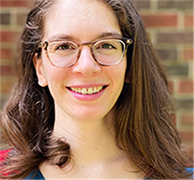A .gov website belongs to an official government organization in the United States.
A lock () or https:// means you've safely connected to the .gov website. Share sensitive information only on official, secure websites.

Marine aerosols like sea salt aerosols and sulfate, derived from plankton emissions of dimethyl sulfide (DMS), influence climate by directly scattering radiation and serving as cloud condensation nuclei. Clouds also play a critical role in the chemistry of DMS and the recycling of reactive halogens, of which sea salt aerosols are the largest source in the troposphere. Reactive halogens play a key role in the atmosphere's oxidative potential and the chemistry of mercury, ozone, methane, and other aerosol species including sulfate via DMS and nitrates, leading to additional feedbacks on pollution and climate. Here I will present recent work in our group from two projects. First, we simulate the impacts of intentional sea salt aerosol emissions for Marine Cloud Brightening climate intervention on pollutants and greenhouse gases. Second, we simulate the impacts of marine-derived aerosols over the Benguela upwelling system off the coast of Southern Africa, a critical region for Earth’s climate and for aerosol-cloud interactions in particular. Here, most previous research has centered on the impact of biomass burning aerosols during its peak season (August – October), while the role of DMS and sea salt aerosol emissions during the rest of the year remain underexplored. We develop and apply the GEOS-Chem 3-D atmospheric chemical transport model to investigate this system, including in the context of our rapidly evolving understanding of DMS chemistry.
Hannah Horowitz is an assistant professor in the Civil and Environmental Engineering Department at the University of Illinois – Urbana Champaign, with an affiliate appointment in the Department of Atmospheric Sciences. She received her BA and PhD from Harvard University in Earth and Planetary Sciences, as well as a MS in Environmental Science and Engineering. She was an NSF Postdoctoral Research Fellow at the University of Washington’s Joint Institute for the Study of the Atmosphere and Ocean, and then joined the faculty at UIUC in 2020. Her research focuses on the interactions between human activity, atmospheric chemistry, climate, and pollution, through developing and applying global models.
ALL Seminar attendees agree not to cite, quote, copy, or distribute material presented without the explicit written consent of the seminar presenter. Any opinions expressed in this seminar are those of the speaker alone and do not necessarily reflect the opinions of NOAA or CSL.